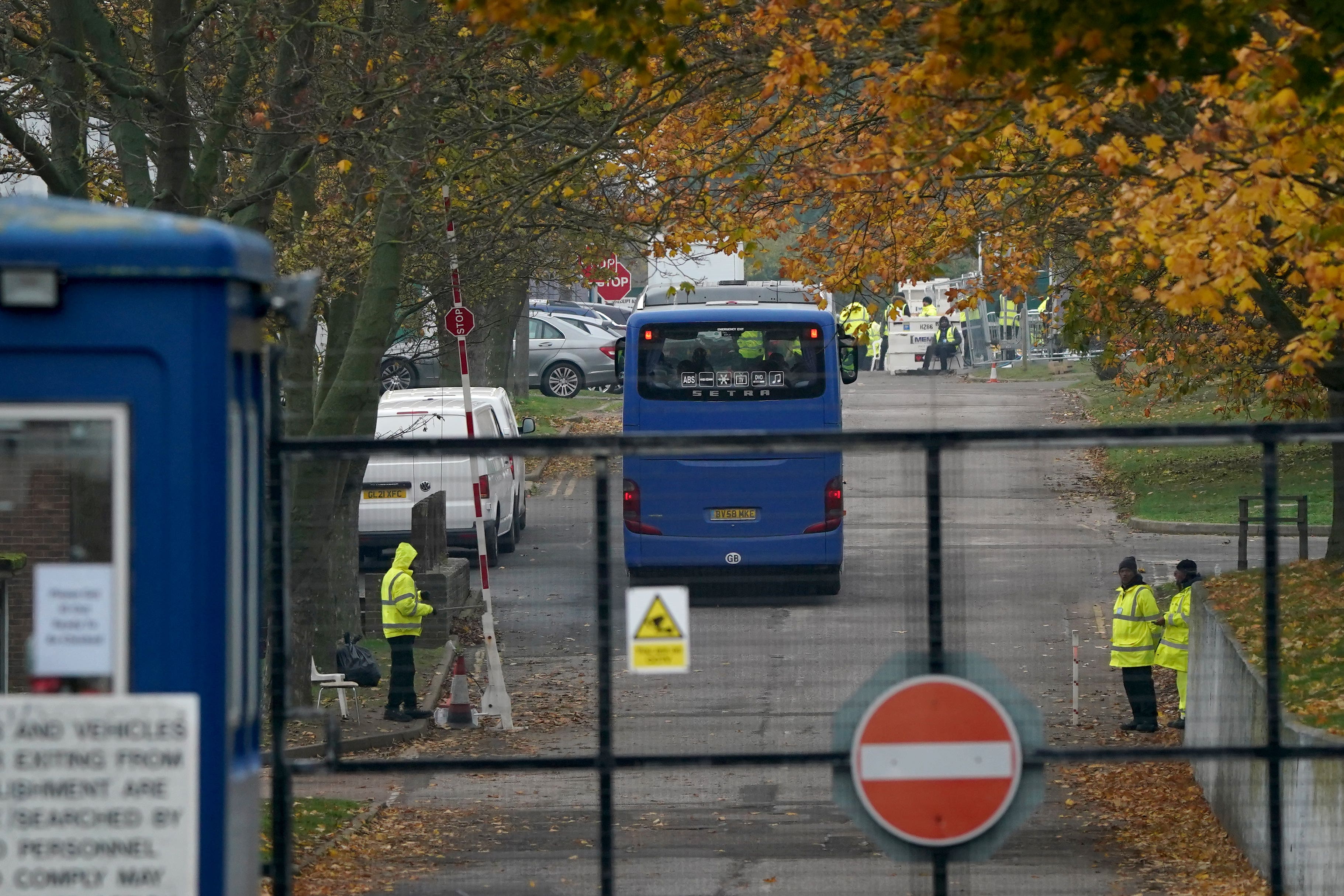Ministers rip up protections for torture victims and asylum seekers in processing centres
Government rewrites rules allowing it to hold people for up to four days in worse conditions after legal challenges
Ministers are ripping up protections for torture victims and asylum seekers arriving on small boats, while quadrupling the time they can be held at controversial processing centres.
Immigration minister Robert Jenrick has quietly rewritten the law governing short-term holding facilities such as Manston to dramatically downgrade standards of healthcare, legal advice, communications and sleeping conditions.
Charities have accused the government of making it “easier to get away with horrors” that saw a man die of diphtheria last month with the changes.
Experts fear that victims of torture will not be identified after crossing the Channel, because obligations to report concerns about torture, suicidal ideas, mental health or any person “injuriously affected by continued detention” are being removed.
The changes were lodged as a statutory instrument without debate in parliament, or a public announcement, on Thursday and will come into force on 5 January.
They will mean that migrants can be held at Manston for four days and in worse conditions, without the government breaking the law.
Ministers came under pressure over major overcrowding at Manston in the autumn, when it emerged that some asylum seekers were being detained far beyond the 24-hour legal limit, while sleeping on the floor of tents.
A lawyer who works on unlawful detention cases told The Independent the move was part of a pattern of the government making “constant amendments in response to legal challenges”.
“All they are doing is making it lawful to do things that were previously unlawful,” added the solicitor, who did not want to be named. “There’s a reason these policies were created in the first place.”
The 2018 rules being changed have been used in numerous successful challenges by migrants and asylum seekers who were unlawfully detained by the government, and The Independent understands that individual cases have seen the Home Office pay up to £40,000 in compensation.

A pre-action letter said The Short-term Holding Facility Rules 2018 meant that migrants could only be held for 24 hours at Manston without a formal extension in “exceptional circumstances”, and had to be granted confidential meetings with lawyers, access to mobile phones, and internet access.
All of those entitlements are being downgraded for a new category of detention centre, which the government has labelled a “residential holding room”.
The new law says people can be detained for 96 hours, or longer if authorised by the home secretary in “exceptional circumstances”, up on the previous 24 hours.
Sweeping changes have been made to healthcare requirements, with a clause stating that detainees must be medically screened within two hours changed to make the time period 24 hours, or longer if “not possible”.
Medics will only have to identify “any immediate risk to health” and review the person’s detention – a dramatic downgrade on the 2018 law, which specified that they must report anyone whose health would be affected by continued detention or the conditions.
It said that anyone suspected of having suicidal intentions had to be reported to a manager and cared for, and that “concerns that a detained person may have been a victim of torture” must be formally raised.
Formal reports had to be drawn up into any identified cases and sent to the Home Office, while staff made “any special arrangements necessary”.
Asylum seekers will only be legally entitled to medical care if they “become ill or sustain an injury”, whereas the previous law mandated “access to a healthcare professional” for anyone who asked.
The new law states that the size, lighting, heating, ventilation and fittings of facilities are “adequate for health”, cutting out parts of the 2018 law that mandated storage and the ability to communicate with staff.

Previous rules meant that detainees of different sexes had to be given separate sleeping accommodation, but the new ones only require that “where possible”.
The government is removing entitlements to send letters and other communications for free, to have access to the internet and to receive visitors other than lawyers.
An absolute right to meet legal advisers in confidence is being watered down, with meetings only allowed “if practicable” and possibly being in the sight of staff.
Conditions have also been added to the right to access telephones, with the government adding a clause saying communication can be restricted if it “would prejudice the interests of the security of the short-term holding facility or the safety of the detained person or other persons”.
Sile Reynolds, head of asylum advocacy at Freedom from Torture, called the changes a “dangerous withdrawal of the safeguards that protect vulnerable people in detention”.
“This government is fully aware of the ramifications of this disturbing policy change, which is why they have tried to sneak it through without proper scrutiny by parliament,” she added.
“Rather than improve the dire conditions at Manston, the government is deliberately legislating to degrade them. These changes should be immediately reversed.”
The Home Office did not answer The Independent’s questions on why it had not announced the changes, the reasons for making them or the risk of downgrading medical screening after a diphtheria outbreak.
Annie Viswanathan, director of Bail for Immigration Detainees, said: “One month ago, the government was holding thousands of people illegally in grossly overcrowded, unsanitary conditions, with outbreaks of infectious diseases and families sleeping in marquees for weeks.
“Instead of improving its processes to ensure such horrors are never repeated, the government has quietly changed the rules to make it easier to get away with it.
“The government has done all it can to evade scrutiny by introducing the law change without any announcement, just days before parliamentary recess.”
The Home Office said it was committed to the welfare of people held at Manston and that 24- hour medical assistance was available.
A spokesperson added: “Our staff have worked tirelessly to ensure that Manston has remained able to process migrants securely and to keep the public safe.
“To make sure the site is best equipped to cope with the unprecedented number of people arriving via illegal journeys, we are taking further action to improve and expand facilities on site.”
Join our commenting forum
Join thought-provoking conversations, follow other Independent readers and see their replies
Comments


Bookmark popover
Removed from bookmarks